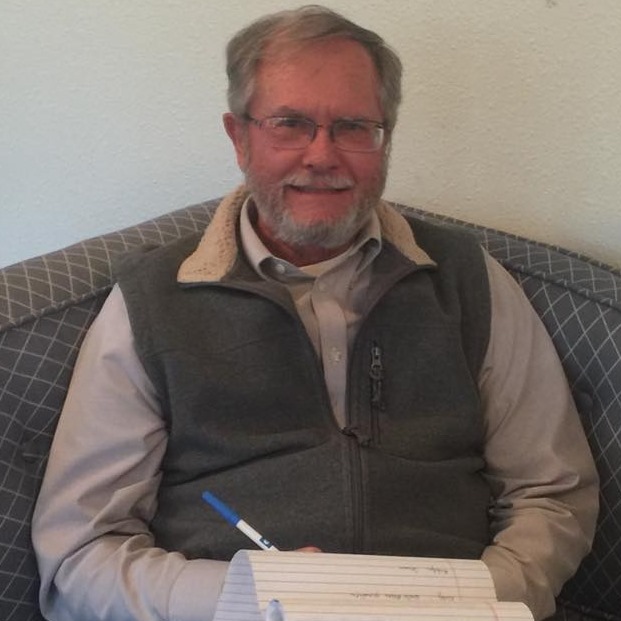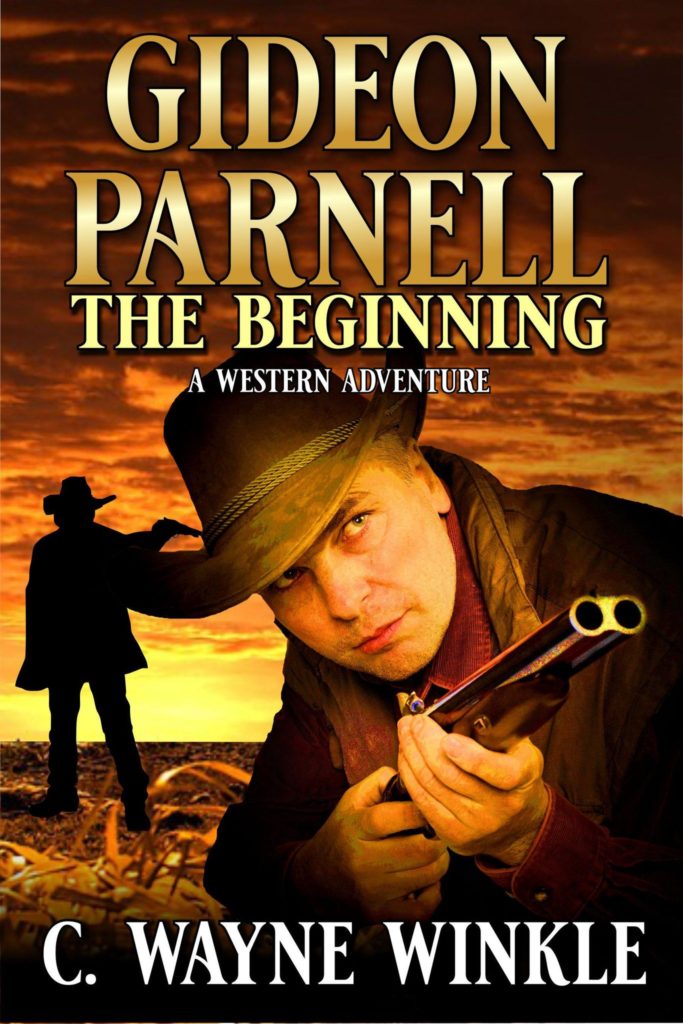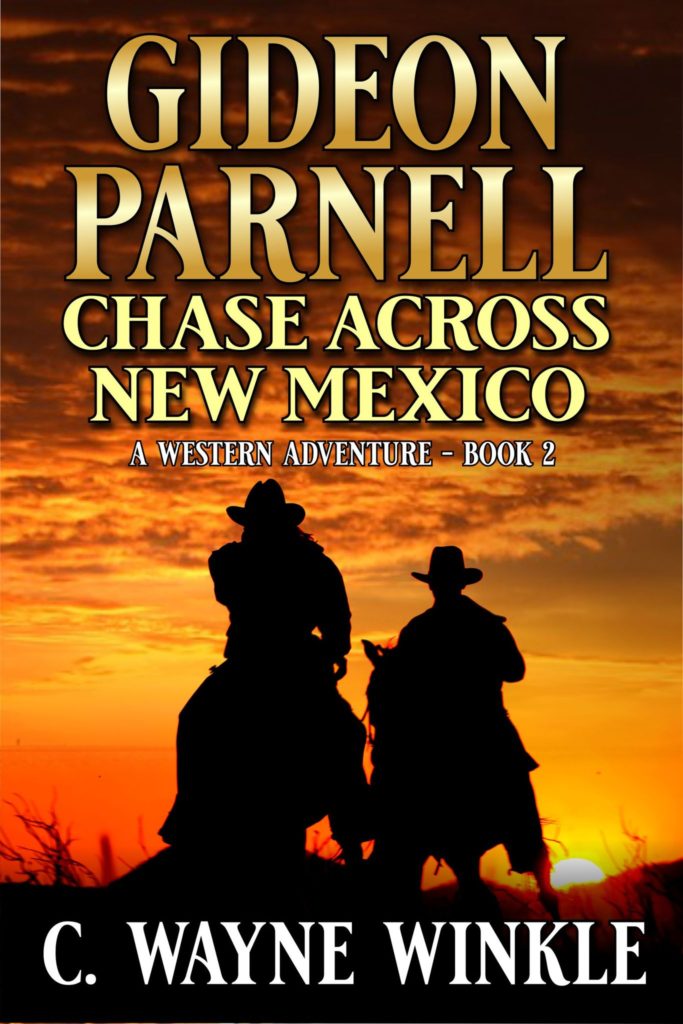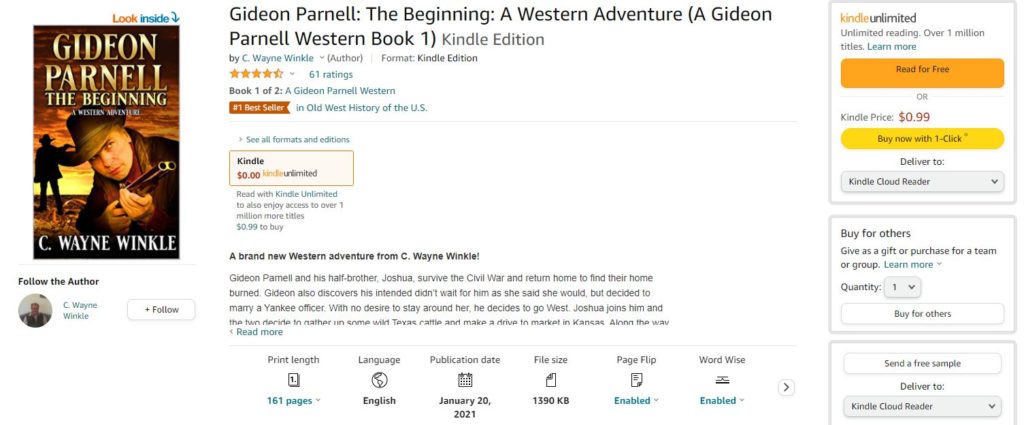
One of the most popular Western authors of today—Wayne Winkle doesn’t often give interviews but we coaxed him to give us some answers that may explain some of the factors behind his great success. To understate the success of Wayne Winkle is to make a mistake of huge proportions. Each new release finds itself inside the top ten in record time, and he has created a string of bestsellers as high as an elephant’s eye, and now we will put the questions to him.
Thank you for agreeing to this interview, Wayne. Let me start by asking you this. What was it that first drove you to write a Western novel?
I grew up watching Westerns on TV and loved them. I think that’s what got me started thinking about writing, although it was likely an unconscious thing back then. After getting older and getting my career as a psychologist working, I started thinking more about writing because I’ve always liked to write. It seemed natural that the first good novel I wrote would be a Western. I’d tried writing other genres, but they just didn’t feel right. Westerns felt, and still feel, right to me.
Interesting. How long did it take you to write that first book?
As best I can remember (keep in mind I’m getting to be an old fart and my memory isn’t as sharp as it used to be), the first Western, ONE LAST CHASE, took me probably six months to write. I did a lot of research before starting it.
What was your first experience of the West?
Well, now, that depends. If you consider six weeks at Ft. Sill, OK, in the middle of the summer an experience in the West, then that’s what it was. However, I like to think about my first real experience of the West as my first trip to Santa Fe. I immediately fell in love with the country out there. That was later, probably in the 1990s. There are a lot of other places in the West I want to visit.
Big question. How did you approach releasing your book? What avenues did you research?
For the first novel, I looked into self-publishing and immediately shied away from that. I’m not a salesman and don’t really like selling myself. Basically, I’m an introvert. I then found a publisher in Australia who took care of everything other than really basic marketing. That first attempt didn’t go so well as far as sales are concerned. I’m really glad I found DS Productions and my publicist, Nick Wale.
Did you approach writing a Western for revenue, or for relaxation, or both?
I think with the first novel I wrote for my own enjoyment with the hope of some revenue. Now, I write for both relaxation and revenue. As hard as the work of writing can be, it still is enjoyable and at least a little relaxing.
How did you commit yourself to writing? Was it hard for you to sit down daily and write?
Once I got really started writing, it has not been difficult to sit down and write every day. In fact, if I don’t write something every day, I get a little antsy. I approach writing now as my profession, one in which I don’t feel like I’m working because I enjoy it so much. It’s hard for me not to write.

Do you feel the Western is strongest now—or has it still got a way to go to match its heyday?
I think Westerns still have a way to go to reach where they were in popularity in the 1940s and 50s, but they’re gaining in popularity again. In my opinion, that’s because people find themselves in a world where so many things are unclear regarding morals and behaviors. Being able to escape in a good Western where there are usually pretty clear good guys and bad guys brings them some relief. I think, too, there are still a lot of people out there who like to see bad guys get what’s coming to them. And Westerns are a good platform for teaching basic morals that aren’t always taught clearly now.
Where did the idea come from for your latest series?
I really don’t know. I spend quite a bit of time inside my own head (scary as that may be) doing ‘what if’ thinking. Sometimes, that starts me thinking about a potential character or scenario. Other times, ideas just seem to pop into my head, and they take off. That seems to be where the NATHAN GAGE and GIDEON PARNELL characters came from.
What kind of stories do you feel are most popular with the readership?
That seems to go in cycles. Right now, a lot of people seem to be buying books about lawmen and bounty hunters. That probably will change at some time in the future.
Do you enjoy a feeling of kinship with the Western writing community?
I think the Western writing community is growing quickly. That’s a good thing, even if it means more competition. It spurs me to write better. So, I think the answer to the question is yes, I do feel kinship with the other Western writers. I love to see the kinds of plots and situations other writers come up with in their books. I love to see other writers do well, also, even if it means I have to work a little harder to keep up with them.
How long did it take for you to break through? Was it overnight? Was it a longer process?
I don’t think there is any overnight breakthrough in any genre. Those overnight successes you read about probably had a lot of unsuccessful books before the one that really took off. That was the way it happened for me. A lot of less successful books went out before the ones that started selling well.

What would you say the lesson was from your experience?
There have been many lessons for me. One was to do the research and get things right. Readers are sharp and will pick out anything that isn’t historically or logically correct. Another lesson for me was to take my time. In the past, my desire to get things accomplished sometimes caused me to rush them and not do my best. Another lesson: listen to those who know the market and write what readers want to read. Maybe the most valuable lesson: don’t give up! Keep writing and improving, no matter who well you’re doing right now. There’s always something you can do better.
How would you approach it differently if you were to repeat it today?
If I were able to start over, I’d start writing a lot sooner than I did. Regarding the lessons listed above, I would keep all of them firmly in mind and not forget them.
What would your advice be to a brand new author about the process of becoming a Western seller?
Remember you want to be a professional. That means keeping your readers in mind as you write, choosing the best words to get your story across, and making sure what you write is accurate. Do the best you can, understanding that not everyone is going to like what you write all the time. There are readers out there who probably know more than you do about the time and culture you’re writing about. They’re going to pick up on inaccuracies. Read your reviews and learn from them. At the same time, you need to develop a thick skin. Stay humble!
Thank you, Wayne.
You are very welcome!


You must log in to post a comment.